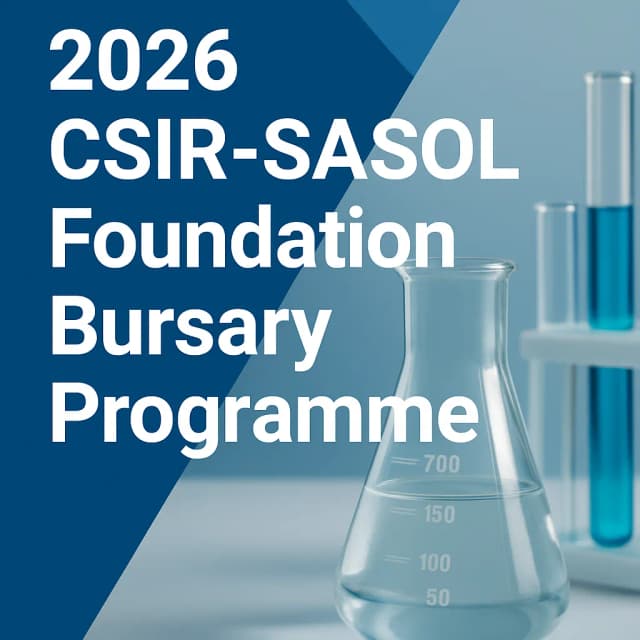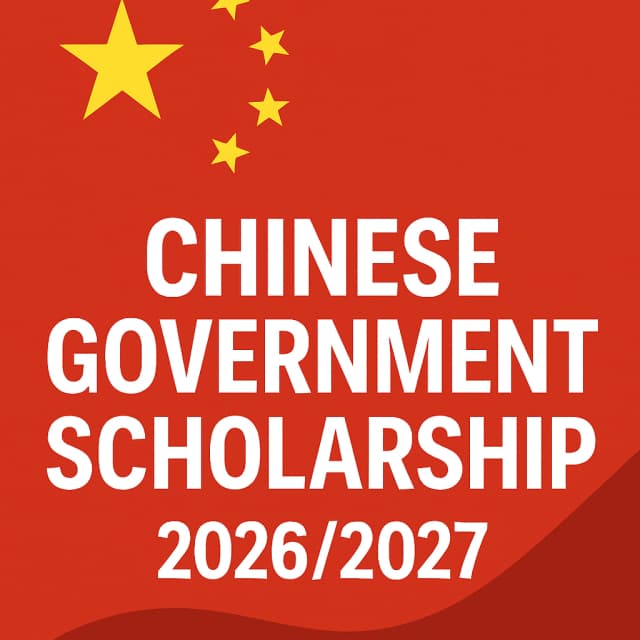2026 CSIR-SASOL Foundation Bursary Programme
📖 About CSIR-SASOL Foundation Bursary Programme
The CSIR, in collaboration with the Sasol Foundation, provides financial support to full-time, unemployed students seeking qualifications in areas deemed a priority by the CSIR.
This bursary aims to attract and increase the participation of women, black individuals, and people with disabilities in science, engineering, and technology.
Areas for an Undergraduate Bursary
The bursary covers the following fields of study:
- Mechatronic Engineering
- Computer Engineering
- Electronic Engineering
- Computer Science
- Chemical Engineering
- Material Flow Analysis
- Process Engineering/Life Cycle Assessment
- Information Technology
- Data Science
- Industrial Engineering
- Genetics/Cell Biology
- System Engineering
🎯 Obligations
Recipients are obligated to work back one year for every year funded by the CSIR and Sasol Foundation.
🎁 Benefits of CSIR-SASOL Foundation Bursary Programme
This is a comprehensive bursary that covers all costs associated with university studies, including:
For Undergraduates
- Registration fees
- Tuition fees
- Books
- Accommodation
- Living allowances
- Once-off laptop allowance
Additional Support
CSIR-SASOL Foundation students will also receive:
- Recognition of top-performing students through CSIR Excellence Awards, certificates, and gifts.
- Possible work placement opportunities at the CSIR and affiliated organisations.
- Interview skills training for final-year students preparing for the workforce.
- Opportunities to work on real-life projects addressing socioeconomic challenges (CSIR co-supervision).
- Onboarding sessions to meet the CSIR and Sasol Foundation team.
- Psychosocial support (academic and psychological support).
- Student wellness programme.
- Mentorship opportunities with senior CSIR professionals.
- Vacation work opportunities of up to six weeks per annum.
✅ Eligibility Criteria
Current Grade 12 Learners
- Must be a South African citizen.
- Intend to enrol full-time for the degree of choice at a South African public university.
- English: Level 5.
- Mathematics: Level 6.
- Physical Science: Level 6.
Current University Students
- Must be a South African citizen.
- Planning to enrol full-time at a South African university for 2025.
- Must have passed all registered courses for the completed study period at the university.
Required Documents
Applicants must submit the following:
- An updated CV.
- A copy of your certified identity document.
- A copy of your latest academic record.
- A copy of the Grade 11 final year results (for current Grade 12 learners).
Failure to attach these documents will result in your application being null and void.
📅 Application Date and Process
The call for 2026 applications is now open!
Application Deadline
Friday, 29 August 2025
How to Apply
Visit the official application portal: https://bursaryconnect.csir.co.za/
📞 Contact Information
For more information, please contact the CSIR Bursary Programme team:
- Tel: +27 (12) 841 2616
- Email: bursaryprogramme@csir.co.za
📄 Documents
🔗 Scholarship Application Portal
View details of the CSIR-SASOL Foundation Bursary Programme: CSIR-SASOL Foundation Bursary Programme
Apply here: https://bursaryconnect.csir.co.za/
- Registration fees
- Tuition fees
- Books
- Accommodation
- Living allowances
- Once-off laptop allowance
- Recognition of top performing students – CSIR Excellence Awards, certificates and gifts handed out
- Possible work placement opportunities at the CSIR and other affiliated organisations
- Interview skills training offered to final year students in preparation for the world of work
- Opportunity to work on real-life projects that address socioeconomic challenges through your research (CSIR co-supervision)
- Onboarding session and an opportunity to meet the CSIR and Sasol Foundation team
- Psychosocial support (e.g. academic and psychological support)
- Student wellness programme
- Opportunity to be paired with senior CSIR professionals through a mentorship programme
- Vacation work opportunities of up to six (6) weeks per annum.











